When stocking your liquor cabinet at home or ordering at a restaurant or bar, there are so many choices. This quick guide to the world of spirits and the different types of alcohol is here to help.
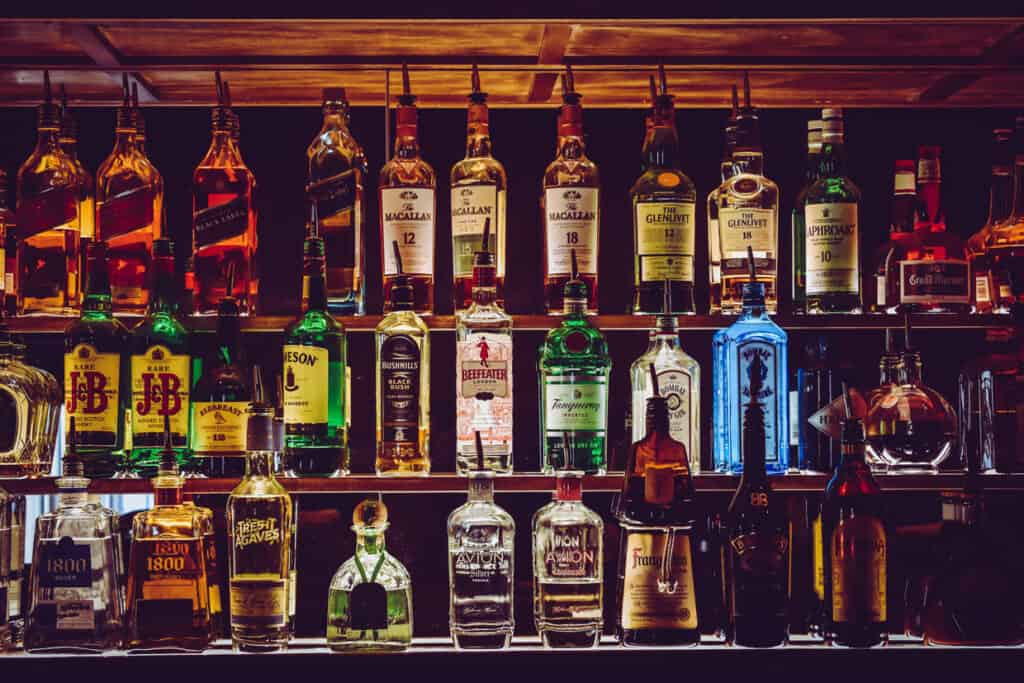
You’ll also want to get to know the different cocktail mixers, as they go hand-in-hand with the different types of booze. And it’s a good idea to track how old your liquor bottles are and to store alcohol properly, too.
Types of alcohol
There are two main types of alcohol: distilled spirits and fermented alcohol. Here’s the difference:
- Distilled spirits: Includes high-proof base spirits (vodka, whiskey, tequila, rum, brandy and gin) as well as liqueurs (coffee liqueur, amaretto, Irish cream, etc.) which tend to be lower proof.
- Fermented alcohol: Includes wine, fortified wine (such as vermouth or sherry), sparkling wine (champagne, prosecco, etc.) and beer.
All alcohol begins as fermented alcohol, but not all alcohol is distilled. Alcoholic fermentation starts with a liquid raw material containing sugar, which is followed by the addition of yeast. Alcohol is produced when the yeast acts on the sugar.
With distillation, the alcohol is separated from the fermented liquid through a process of heating and condensation. The fermented liquid is heated, then the resulting vapor is cooled and turned back into a liquid.
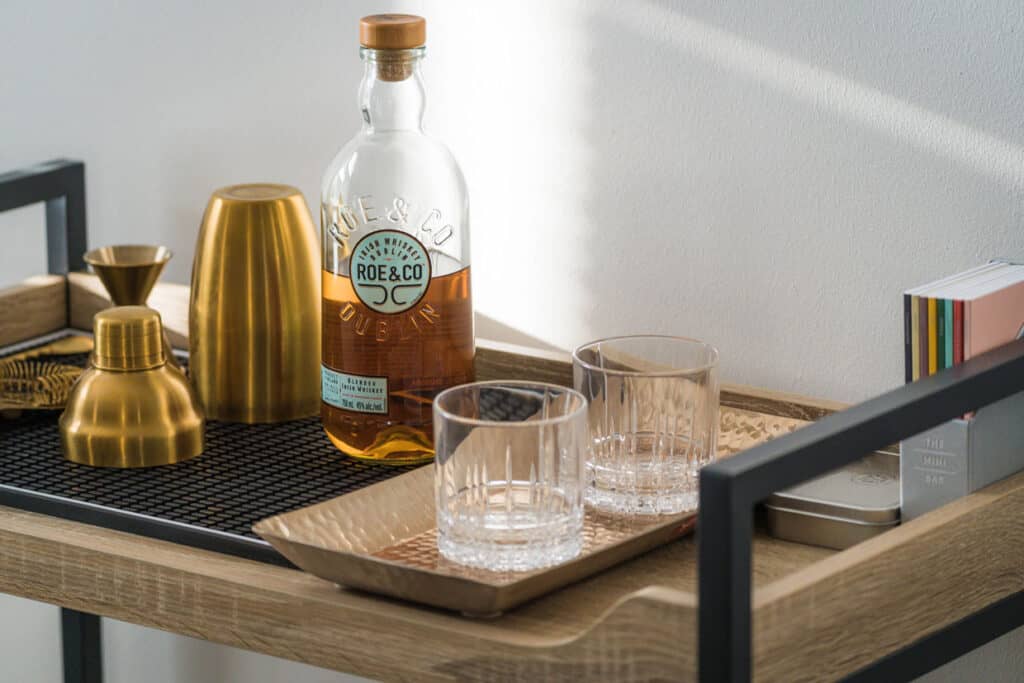
The six base spirits
There are six main spirits, or liquors, that serve as the base for most drinks: vodka, gin, rum, tequila, brandy and whiskey. All of these are distilled spirits, which means they undergo another process after fermentation.
Here’s a little about all six, including some of the drink recipes you can make with each one:
1. Vodka
A clear spirit that originated in Russia, vodka is made from grains (barley, corn, rye and wheat) or potatoes, which are fermented and then distilled. It is then typically filtered, producing a neutral flavor, though artificial flavors can also be added.
Types: Plain vodka, flavored vodka, infused vodka
Popular brands: Absolut, Tito’s, Grey Goose, New Amsterdam, Pinnacle
Cocktails to know: Bloody mary, cosmopolitan, Cape Codder, white Russian, Moscow mule
2. Rum
A sugarcane-based spirit originating in the Caribbean and Latin America, rum is made from molasses or sugarcane juice that is fermented and distilled. It can be aged for varying amounts of time in oak barrels, resulting in different colors and flavors.
Types: Silver rum, gold rum, spiced rum, dark rum, rhum agricole, flavored rum
Popular brands: Bacardi, Gosling’s Black Seal, Cruzan, Plantation, Captain Morgan
Cocktails to know: Mojito, dark & stormy, mai tai, daiquiri, Cuba libre
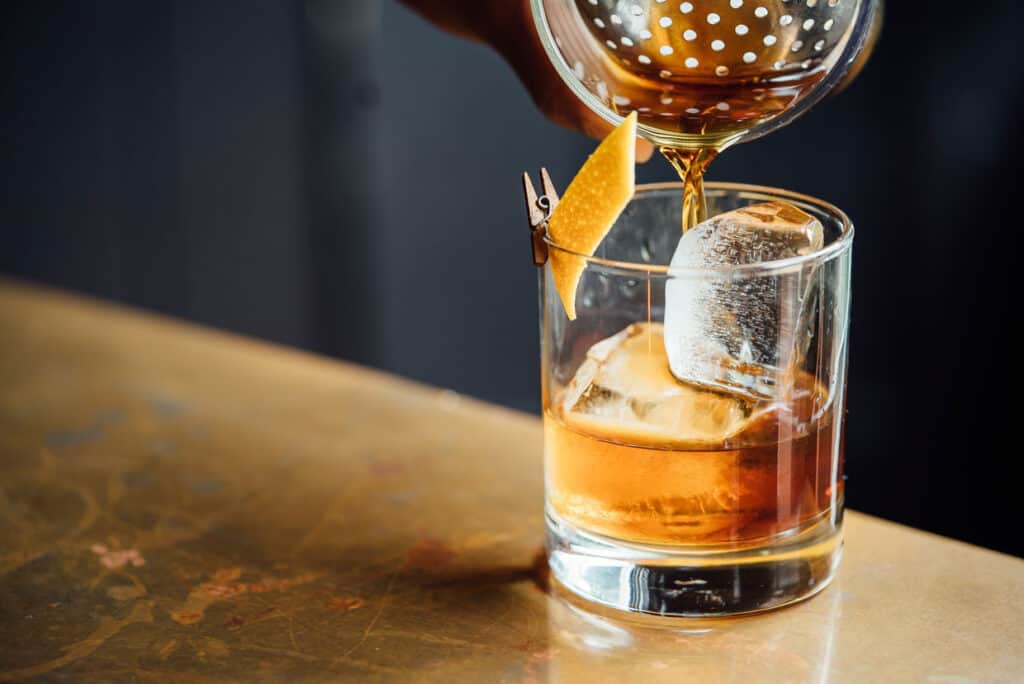
3. Whiskey
Made from fermented grain that is distilled then aged in oak barrels, whiskey is a grain-based spirit, with the most well-known hailing from Japan, the United States, Scotland and Ireland.
”Bourbon is the best spirit in my book — it’s a little sweet and balanced. It can be used in classic cocktails while also being an incredible base for innovative concoctions, making it my number one choice for my bar cart.”
— Meghan Yager, Cake ‘n Knife
Types: Bourbon, Irish whiskey, rye whiskey, Canadian whisky, Scotch, Japanese whiskey, flavored whiskey
Popular brands: Old Forester, Maker’s Mark, Jameson, Crown Royal, The Macallan
Cocktails to know: Old-fashioned, Manhattan, Irish coffee, mint julep, whiskey sour
4. Gin
Gin is a spirit that originated in the Netherlands and is made from juniper berries and other botanicals, such as herbs, spices and fruits. These ingredients are infused into a neutral spirit and then redistilled, resulting in a distinct flavor that is often mixed in cocktails.
Types: London dry, Old Tom, Plymouth, genever, sloe gin
Popular brands: Hendrick’s, Plymouth, Tanqueray, Beefeater, Blue Sapphire
Cocktails to know: Gin & tonic, martini, greyhound, Tom Collins, French 75
5. Tequila
Tequila is created from the blue weber agave plant, which is primarily grown in Mexico. The agave hearts, or piña, are roasted and crushed to extract their juices, which are then fermented and distilled. Tequila can be aged for varying amounts of time, resulting in different colors and flavors.
Technically, though, tequila is a type of mezcal. Mezcal can be made from any varietal of agave plant, whereas tequila can only be produced with the blue weber agave. In other words, all tequila is mezcal, but not all mezcal is tequila.
“Tequila is always my go to spirit for cocktails. I love adding fresh citrus to it whether it’s in a margarita or just lime and seltzer water. There is always a new, fun way to try tequila.”
— Madison Wetherill, A Joyfully Mad Kitchen
Types: Mezcal, blanco, gold, reposado, añejo, extra añejo
Popular brands: Patron, El Jimador, Tres Agaves, Espolon, Sauza
Cocktails to know: Margarita, ranch water, paloma, tequila sunrise, bloody maria
6. Brandy
Brandy is made from fermented fruit, such as grapes, apples or pears. Distilled and aged in oak barrels, brandy comes in a range of colors and flavors and is produced around the world. It’s an excellent spirit to add to your bar cart, especially for winter cocktails.
Types: Cognac, armagnac, calvados, pisco, Spanish brandy, American brandy, applejack
Popular brands: Remy Martin, Hennessy Cognac, Paul Masson
Cocktails to know: Brandy Alexander, sidecar, eggnog, pisco sour, corpse reviver No. 1
Types of liqueur
Liqueurs are a type of spirit made by combining a distilled spirit with flavorings, extracts and natural ingredients. Here are a few of the most well-known liqueurs and their flavors:
- Amaretto (almond)
- Aperol (herbs and bitter oranges)
- Campari (herbal, bitter)
- Chambord (black raspberry)
- Coffee liqueur
- Frangelico (hazelnut)
- Irish cream (coffee,
vanilla , chocolate and whiskey) - Limoncello (sweet and sour lemon)
- Orange liqueur (sweet orange)
- St. Germain (elderflower)
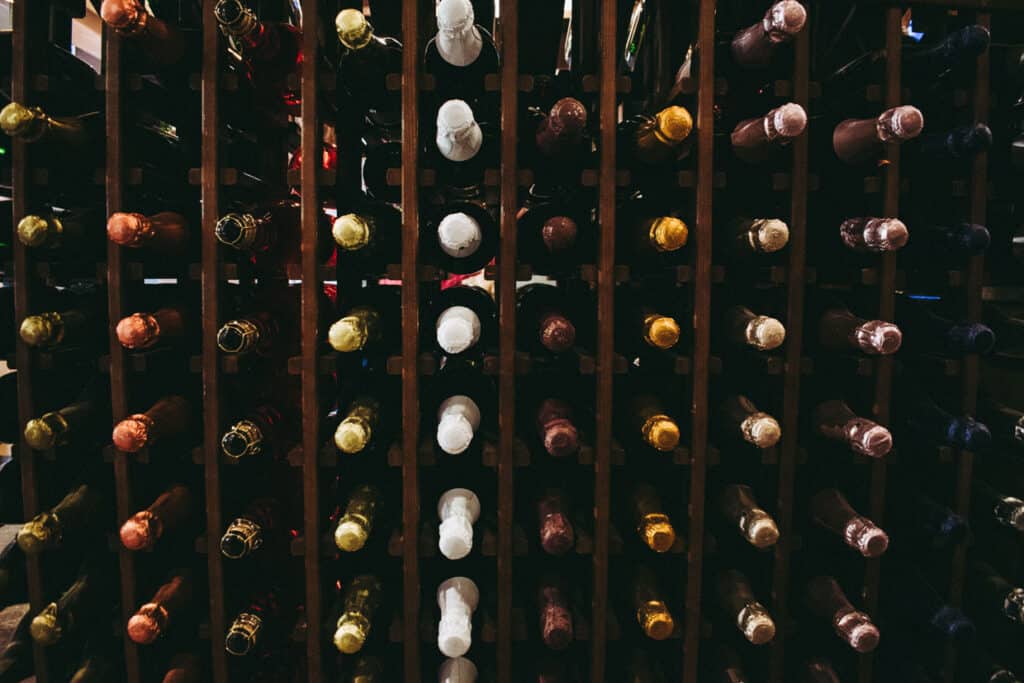
Types of wines
Wine is fermented alcohol made from grapes, and there are several types of bottles you can buy:
- White wine
- Red wine
- Rosé wine
- Sparkling wine (champagne, cava, prosecco, asti, crémant)
- Fortified wine
While the others are common on restaurant menus, fortified wines aren’t the kinds of wine you’d make sangria with. They are for sipping or mixing into drinks.
Fortified wines have an additional spirit, often brandy, which increases the alcohol content and strengthens, or fortifies, the spirit. There are a few types of fortified wine, including:
- Vermouth
- Port wine
- Sherry
- Madeira
- Marsala
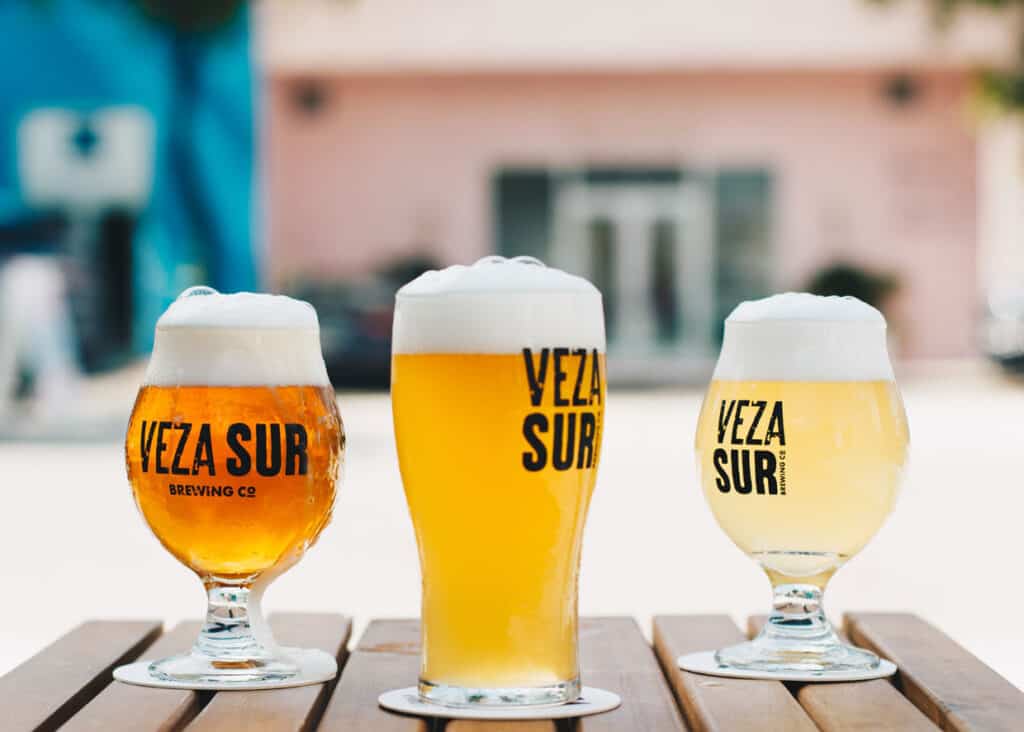
Types of beer
Beer is fermented alcohol produced from water, malted barley, hops and yeast. Beer is delicious in cocktails — try it in a michelada or a beer margarita.
There are two main classes of beer: lagers and ales. According to Home Brew Academy, lager is made with one strain of yeast, while ale is made with another.
Examples of lagers: Bocks, pale American lagers, pilsners, wheat beer, amber
Examples of ales: American pale ales, brown ale, blonde ale, India pale ales (IPAs), stouts, sours, porters
The world of alcohol is vast, and there are many more types not listed here.
Based in Charlotte, N.C., Susannah Brinkley Henry is the cocktail content creator behind the blog Feast + West. Her work has been featured in Southern Living, Oprah Daily, Buzzfeed and more. In 2019, her website was a finalist in the Saveur Blog Awards for Best Entertaining Blog. As a professional graphic designer, photographer, writer, and recipe developer, Susannah helps home bartenders and drink enthusiasts level up their cocktail skills.